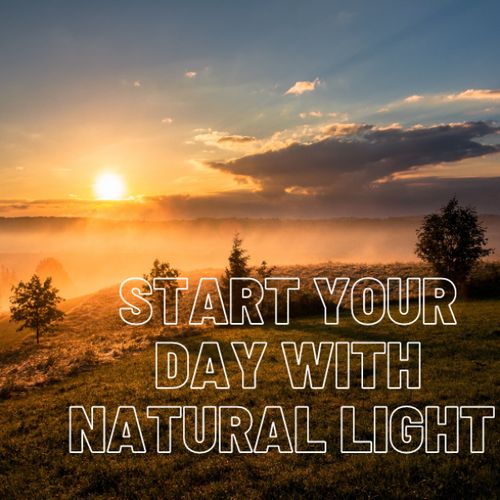Why You Should View Sunlight Directly after Waking
Oct 18, 2022 · 2 mins read
0
Share
There's nothing quite like basking in the warm rays of the sun. Why do you think those native to the cloudy regions of the Northern hemisphere look forward to their vacations? It's a scientific fact that sunlight makes you feel good.
Save
Share
But your body's relationship with Earth's nearest star goes much deeper than the serotonin boost it provides. Circadian rhythms are profoundly impacted by the sun's light/dark cycle, and receiving its photons as soon as you wake up sets you up for the rest of the day.
Save
Share
Professor Andrew Huberman (a leading expert in neurobiology) recommends trying to get at least 10 minutes of sunlight without shades first thing in the morning. This simple practice has wide-reaching effects on a number of different biological processes.
Save
Share
Firstly, it modulates the timing of the cortisol pulse. Once every 24 hours you experience a boost in cortisol that sets your temperature rhythm in motion, as well as improving your energy, mood, and focus. You want this increase to occur as early in the day as possible.
Save
Share
A late-shifted cortisol pulse will mean your temperature rhythm will be out of sync. Studies have shown this to be a signature of depression, anxiety, and difficulty falling asleep, which is why it's so essential to anchor the cortisol boost with natural light soon after waking.
Save
Share
Staying in bed all morning and going outside around midday or early afternoon will put you in what’s referred to as “the circadian dead-zone”. This is the time when light arriving at the eyes can yield some benefits, but can’t effectively time the cortisol awakening response.
Save
Share
The indirect rays from the sun also trigger cells in the eyes called melanopsin retinal ganglion cells (mRGCs). These neurons send a signal to your hypothalamus (your brain's smart control coordinating center) which then releases a peptide that acts as a wake-up signal.
Save
Share
This sets a timer for the onset of the release of melatonin (a hormone that makes you drowsy and signals you to go to sleep) 16 hours later.
But there's more.
The messages sent from the eyes to the hypothalamus discharge the neuromodulator, dopamine.
Save
Share
While dopamine is often thought of as the molecule of pleasure, its main role is to drive motivation, craving, and pursuit—Professor Huberman refers to it as “life-force”. Getting that early morning light will help you seize the day, and stay focused on your tasks.
Save
Share
If you wake up before sunrise turn on some bright lights and get outside as soon as you can. Even if the skies are overcast, there are still more photons coming through the clouds than from artificial sources. Time to fine-tune your master clock, and set yourself up for success!
Save
Share
0
